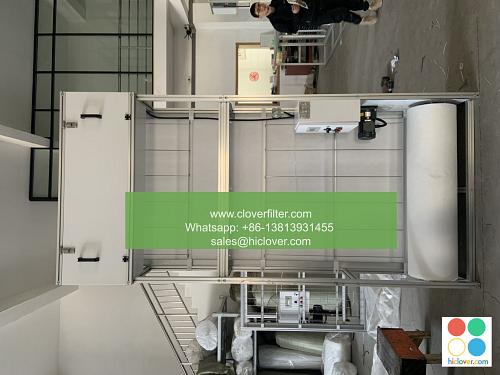The Impact of Air Filter Humidity on HVAC System Efficiency

Air filter humidity plays a significant role in the efficiency and performance of Heating, Ventilation, and Air Conditioning (HVAC) systems. In this article, we will explore the effects of air filter humidity on HVAC system efficiency, and discuss various application areas where indoor air quality and thermal comfort are crucial.
What is Air Filter Humidity?
Air filter humidity refers to the amount of moisture present in the air that passes through the air filtration system of an HVAC unit. The humidity level can affect the airflow rate, pressure drop, and overall performance of the system. High humidity levels can lead to a decrease in HVAC system efficiency, resulting in increased energy consumption and costs.
Effects of Air Filter Humidity on HVAC System Efficiency
The humidity level of the air filter can have several effects on the efficiency of an HVAC system:
* Increased Pressure Drop: High humidity levels can cause the air filter to become clogged, leading to an increase in pressure drop across the filter. This can result in a decrease in airflow rate, leading to reduced cooling capacity and increased energy consumption.
* Reduced Airflow Rate: Excessive humidity can also lead to a reduction in airflow rate, which can compromise the overall thermal comfort and indoor air quality of a building.
* Energy Consumption: The combination of increased pressure drop and reduced airflow rate can lead to increased energy consumption, resulting in higher energy bills and a negative impact on the environment.
Application Areas
The impact of air filter humidity on HVAC system efficiency is particularly significant in various application areas, including:
* Commercial Buildings: High humidity levels can compromise the indoor air quality and thermal comfort of commercial buildings, such as offices, restaurants, and shopping centers.
* Industrial Facilities: Industrial facilities, such as manufacturing plants and warehouses, require precise temperature control and humidity management to maintain optimal conditions for production and storage.
* Healthcare Facilities: In healthcare facilities, such as hospitals and clinics, indoor air quality and thermal comfort are critical for patient care and recovery.
* Residential Buildings: Residential buildings, such as homes and apartments, also require efficient HVAC systems to maintain a comfortable and healthy indoor environment.
Solutions and Recommendations
To mitigate the effects of air filter humidity on HVAC system efficiency, several solutions and recommendations can be implemented:
* Regular Filter Maintenance: Regular air filter cleaning and replacement can help maintain optimal airflow rates and reduce pressure drop.
* Humidity Control Systems: Installing humidity control systems can help regulate the humidity level of the air, reducing the impact of high humidity on the HVAC system.
* Energy-Efficient HVAC Systems: Installing energy-efficient HVAC systems can help reduce energy consumption and minimize the impact of air filter humidity on system efficiency.
In conclusion, air filter humidity has a significant impact on the efficiency and performance of HVAC systems. By understanding the effects of air filter humidity and implementing solutions and recommendations, building owners and managers can maintain optimal indoor air quality and thermal comfort, while reducing energy consumption and costs. Prompt

